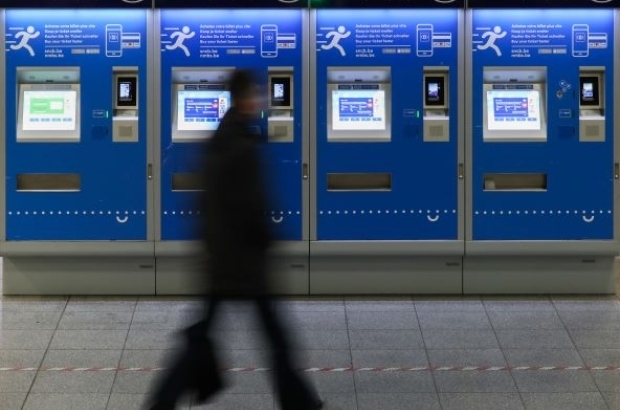- Daily & Weekly newsletters
- Buy & download The Bulletin
- Comment on our articles
Campaign to stop train ticket office closures
With more and more ticket offices closing, even at Brussels’ main stations including Brussels-Central, campaign groups and rail unions are voicing concern.
“Human contact and service are not what they used to be,” said Gery Baele, spokesperson for the Walloon travellers’ association Navetteurs.be.
“Many people miss this personal assistance, especially the elderly and disabled. Employees are forced to send you to a ticket machine. It’s a shame that customer service has been reduced to this.”
Commuters fear the trend will continue with an increasing number of stations operating without staff essential to provide a quality service. “At the counter they always tell you what the cheapest price is. On a machine you have to find out for yourself,” Baele added.
Meanwhile, at Brussels-Central station, where ticket offices have been closed since April, matters are complicated as the ‘Travel Store’, where customers are now directed if they require a personal service, “is actually intended for international trains”, said Jacques Ponjee from Gutib, the association of French-speaking travellers in Brussels.
The situation is particularly problematic in smaller stations. Brussels-Midi station still has ticket desks, but passengers at nearly all other Brussels stations – and the region has 32, - have to rely on vending machines.
“It’s a trend we’re seeing not only in public transport, but also in banking,” Ponjee continued. “Personal contact is disappearing and everything is being handled by machines.”
Staff from Belgian railway operator SNCB are available in some stations to help passengers at the ticket machines.
At Brussels-Midi ticket office they try to keep queues down by asking customers, before they even reach the ticket counter area, to buy their tickets on the machines with their help.
While this is a good compromise, staff must be present, especially in the evenings, to ensure safety, Ponjee added.
Cynthia Van der Linden, spokeswoman for Ombudsrail, the mediation service for train travellers, goes further.
Having raised the issue of disappearing ticket offices for years, and highlighting that since last October the SNCB has stopped selling international tickets at nine stations, Ombudsrail’s annual report said the SNCB is pursuing profit to the detriment of public transport.
“It’s a chicken or egg situation. SNCB says it is monitoring the growth in online ticket sales. But people are being pushed to buy online,” she said.
“We are monitoring the criticisms of organisations as they concern vulnerable people dependent on public transport.”
SNCB spokesman Dimitri Timmerman said: “Even in stations where all buying options are available, most tickets are sold from vending machines.” He said that the machines are set up to offer the cheapest ticket options.
He added that counters will still exist. In addition, in major stations such as Brussels-Central and Brussels-Midi, staff will always be on hand to help passengers use the machines.
That being said, this can sometimes become frustrating if when instead of being able to use the Travel Centre or a ticket counter at Brussels-Midi you are firmly directed to a machine after explaining your ticket choice to an SNCB employee.
Moreover, such annoyances are far more serious for people with disabilities, like Frédéric (56) the son of Maria Paul (80). “I used to drive him by car, but I don’t feel safe any more,” explains Paul in the BRUZZ report.
“Vending machines are too difficult,” one elderly disabled passenger told Bruzz. “I’m anti-machine anyway and I don’t have a smartphone. It’s not always easy for the elderly and disabled.”


















